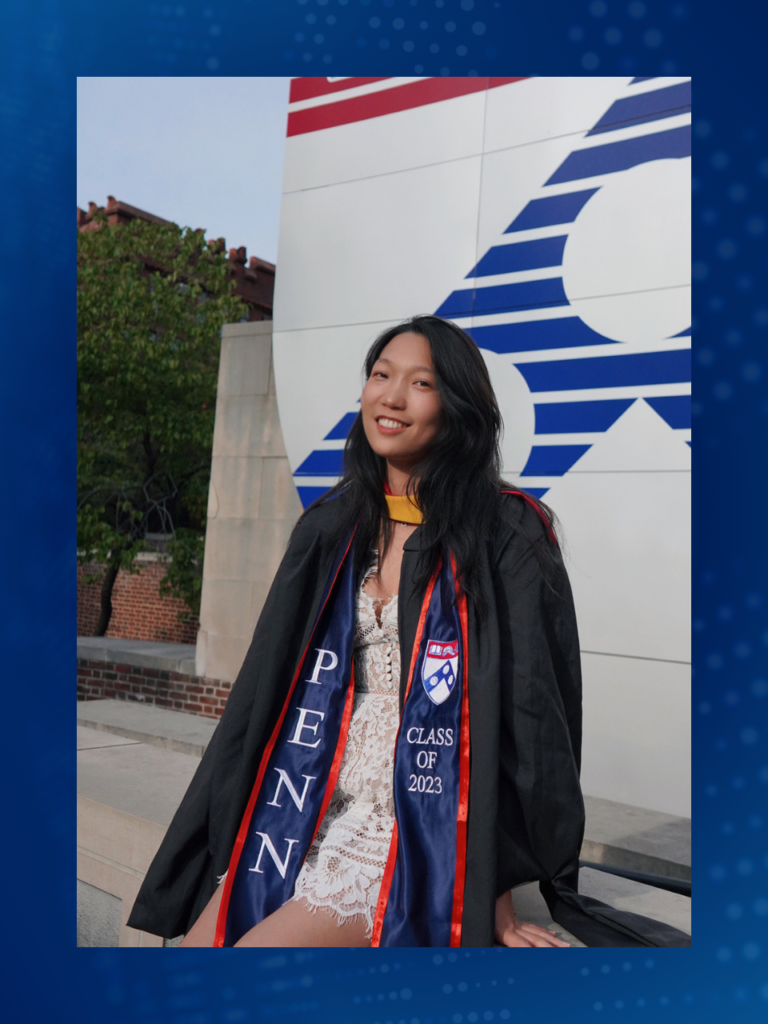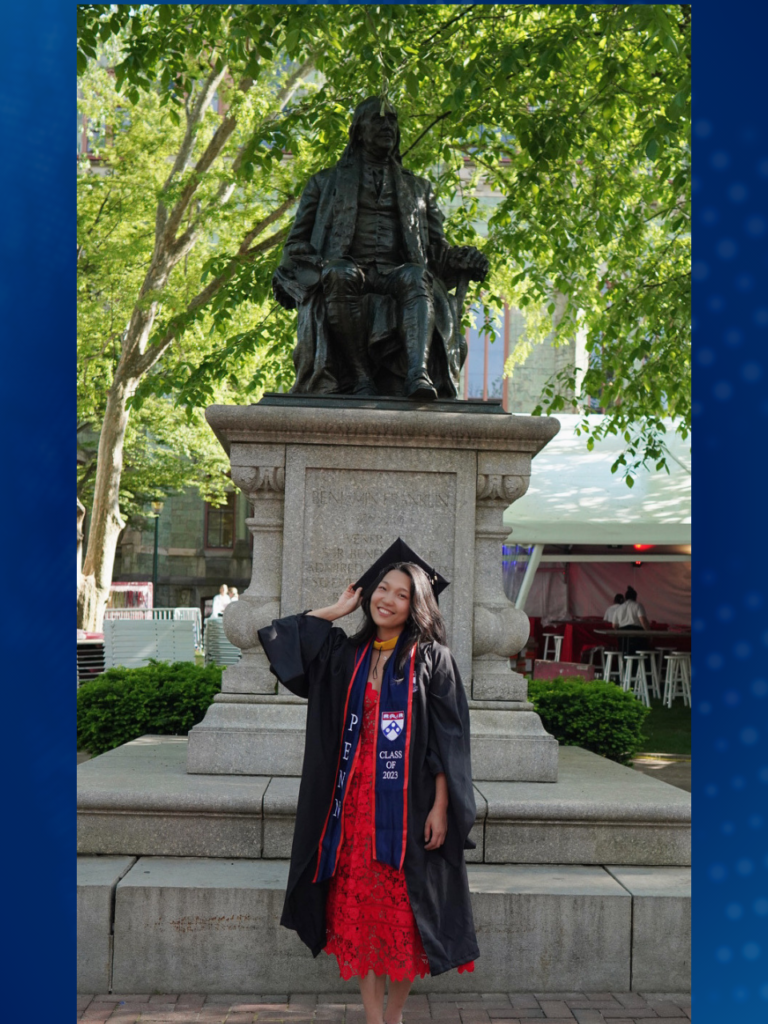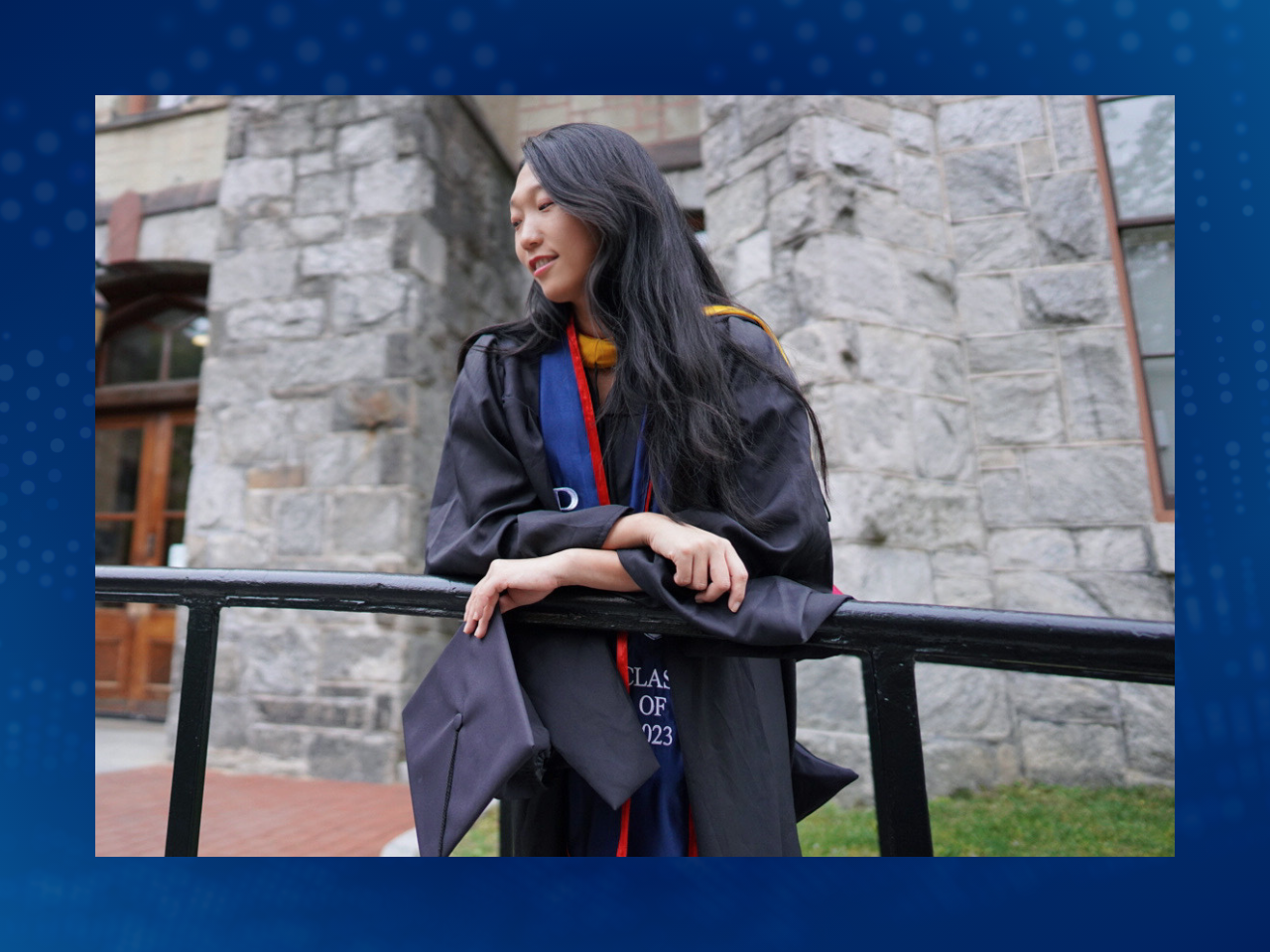From Econometrics to Data Science
For today’s airline travelers, navigating customer service can sometimes feel like an impersonal, disjointed experience. While customer support agents can usually assist with questions or concerns around a specific flight confirmation number, they may lack the comprehensive view of a customer’s overall history with the airline, such as past interactions and preferences. As a result, travelers are often left feeling a bit anonymous and disconnected.
Bennie Yang, MCIT ’23, is a data scientist and analytics leader at a major U.S. airline, where she builds computer models to help the airline centralize customer data. The ultimate goal is to support the company in offering a more cohesive approach to customer service by enabling them to analyze the customer’s overall relationship with the airline. This allows them to tailor interactions to meet each customer’s specific needs.
In her work, Yang draws on her MCIT Online education every day.
“We’re not only building up the operational side with a centralized API, we’re also building out a database to store the data,” she says. “And that’s where my MCIT Online education really shines: I learned to streamline the procedure and think about how to deploy the models.”
A Career Pivot
Yang hasn’t always worked in computer science. An economics major as an undergraduate, she came to the United States to pursue a PhD in economics at Suffolk University with a focus on econometrics. During her PhD years, she also taught courses including statistics and microeconomics. After earning her PhD, Yang relocated from Boston to Memphis to join FedEx, where she leveraged her econometrics background to help the company predict revenue for international flight routes.
Her role at FedEx involved a significant amount of work related to coding and machine learning, and she found herself increasingly fascinated by the technology. She also wanted to learn about the history of computer science, so she decided to pursue a master’s degree in the field.
When Yang started looking into graduate school options, Penn Engineering’s MCIT Online program stood out because it combined a strong computer science curriculum with the flexibility she needed to continue working full-time. She enrolled in Fall 2019 as part of the program’s second-ever student cohort and completed her courses over four years.

“I took one course at a time because I still wanted to enjoy my life,” she says, adding that she often recommends this “turtle” approach, as it’s known in Penn Engineering Online circles, to other students. “When you slow down, you can dive deep into each topic — and really enjoy your studies — instead of just focusing on getting your degree.” Yang graduated with her MCIT degree in 2023.

Real-World Applications
From the start of her MCIT Online experience, Yang learned key concepts that she could almost immediately start apply to her job, first at FedEx and later in the airline industry. “Most computer science programs start by explaining theory, which can be boring,” she notes. “But in this program, I started writing a program in my first class.”
In particular, Yang says the modular approach to programming she learned in MCIT Online has led to significant time efficiency in her work.
“When I wrote programs before, I usually used parallel programming thinking — I just wrote lines and lines of code without thinking about whether you can use it in the future,” she says. “But MCIT Online taught me about object-oriented programming, and now I can reuse the functions and modules I write.”
Yang says she also appreciates the program’s focus on using proper formatting for coding. “In the past, I didn’t always write code in a clean and neat format, and then later I might not remember what I was trying to do,” she recalls. “But my professors at Penn emphasized the importance of writing code in a unified way. That helped me build good habits in programming right from the beginning.”
“A lot of other master’s degree programs only focus on giving you some skills that you can try to apply to your work,” she says. “But the MCIT Online program provides those useful skills and knowledge in combination with a commitment to nurturing your way of thinking, which has a much greater impact on your work and life outside of the program.”
A Network of Support
Faculty and peer support was another important component of the MCIT Online experience for Yang. When she found herself struggling in one particularly challenging course, she started attending TA office hours. She also took advantage of professors’ office hours, noting that when she was unable to join in real time, she could watch on her own schedule.
“I love the teaching style at MCIT Online,” Yang says. “Even though you’re learning online, it feels like you are sitting face to face with your professors. And they provide a lot of channels for you to reach out if you need help.”
While Yang was studying with Penn Engineering, her husband was earning a graduate degree in computer science through another institution. Yang notes that his online learning experience was very different from her own, and in many ways, more isolating. “For him, the hard part was that he had to do it all through self-study,” she says. “He was always amazed by how much support I got.”

A Strong Foundation to Build On
In her current role as a Data Scientist and Analytics Leader for a major U.S. airline, Yang regularly leans on both her economics background and the technical skills she gained from her Penn Engineering Online master’s degree.
“Computer science is purely based on logic, while economics considers how people feel and behave,” she notes. “I already had a background in the “feeling” approach and MCIT Online then gave me insights into logical thinking. It’s an advantage to have both because that combination helps me build connections between the technical world and the business world.”
In the future, Yang plans to add storytelling to her list of skills to help her translate technical information to a broader audience within the business world. “The work we do brings value,” she says, and she wants to help build the bridge between technical teams and other factions of the business. “How can we translate the technical developments and turn that into a story so we can tell the world that we are building something useful and changing people’s lives?”

She’s also interested in learning more about AI to support her data science work for the airline, so she was excited to learn about Penn Engineering Online’s new Master of Science in Engineering in Artificial Intelligence (MSE-AI Online) degree program. She sees an abundance of opportunities to embrace the latest AI technologies and tools as her work progresses into the future.
“After we build the model to be able to predict and understand customers’ needs, the next step is to identify the actions the airline should take,” she says. “That procedure will involve a lot of AI so that when you come to the customer service counter, we know exactly what you need and we can serve you better.”
As she continues to build on the strong foundation that she earned through the MCIT Online degree program, there are no limits on where Yang’s career will take off to next — but there are clear skies and a bright future ahead!
To learn more about pathways that recent graduates of the MCIT Online degree program have pursued after graduation, you can explore the most recent edition of the Graduate Outcomes Report.
To learn more about the MCIT Online degree program please explore the Academics and Admissions information or review the FAQs.
